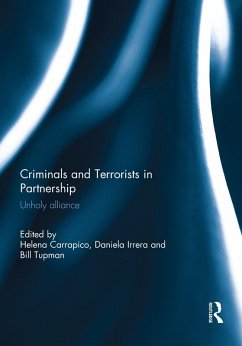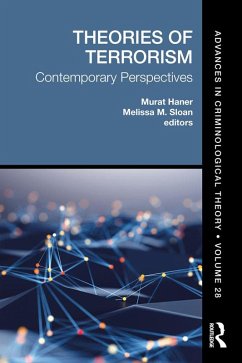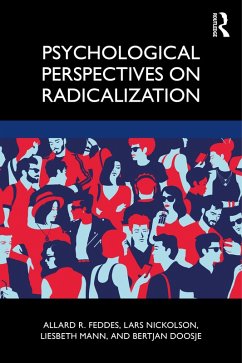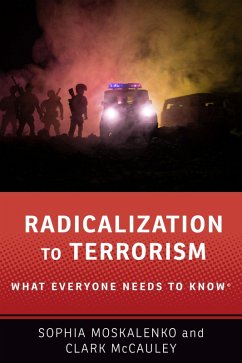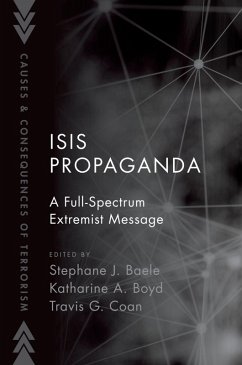
The Psychology of Terrorism (eBook, PDF)

PAYBACK Punkte
7 °P sammeln!
What is terrorism? Can anyone be radicalized? How can we respond to terrorist acts?The Psychology of Terrorism seeks to explain why some acts of violence are considered terrorism and others are not, and why some individuals may be more susceptible to engaging in radical terrorist behavior. Debunking myths and lazy stereotypes, the book delves into some of the most shocking atrocities of our times to discuss the complex and varied psychological characteristics of individual terrorists, organized groups, and their acts.Whilw there is no simple solution, The Psychology of Terrorism shows us that ...
What is terrorism? Can anyone be radicalized? How can we respond to terrorist acts?
The Psychology of Terrorism seeks to explain why some acts of violence are considered terrorism and others are not, and why some individuals may be more susceptible to engaging in radical terrorist behavior. Debunking myths and lazy stereotypes, the book delves into some of the most shocking atrocities of our times to discuss the complex and varied psychological characteristics of individual terrorists, organized groups, and their acts.
Whilw there is no simple solution, The Psychology of Terrorism shows us that a growing reverse radicalization movement and modern interventionist techniques can give us hope for the future.
The Psychology of Terrorism seeks to explain why some acts of violence are considered terrorism and others are not, and why some individuals may be more susceptible to engaging in radical terrorist behavior. Debunking myths and lazy stereotypes, the book delves into some of the most shocking atrocities of our times to discuss the complex and varied psychological characteristics of individual terrorists, organized groups, and their acts.
Whilw there is no simple solution, The Psychology of Terrorism shows us that a growing reverse radicalization movement and modern interventionist techniques can give us hope for the future.
Dieser Download kann aus rechtlichen Gründen nur mit Rechnungsadresse in A, B, BG, CY, CZ, D, DK, EW, E, FIN, F, GR, HR, H, IRL, I, LT, L, LR, M, NL, PL, P, R, S, SLO, SK ausgeliefert werden.








